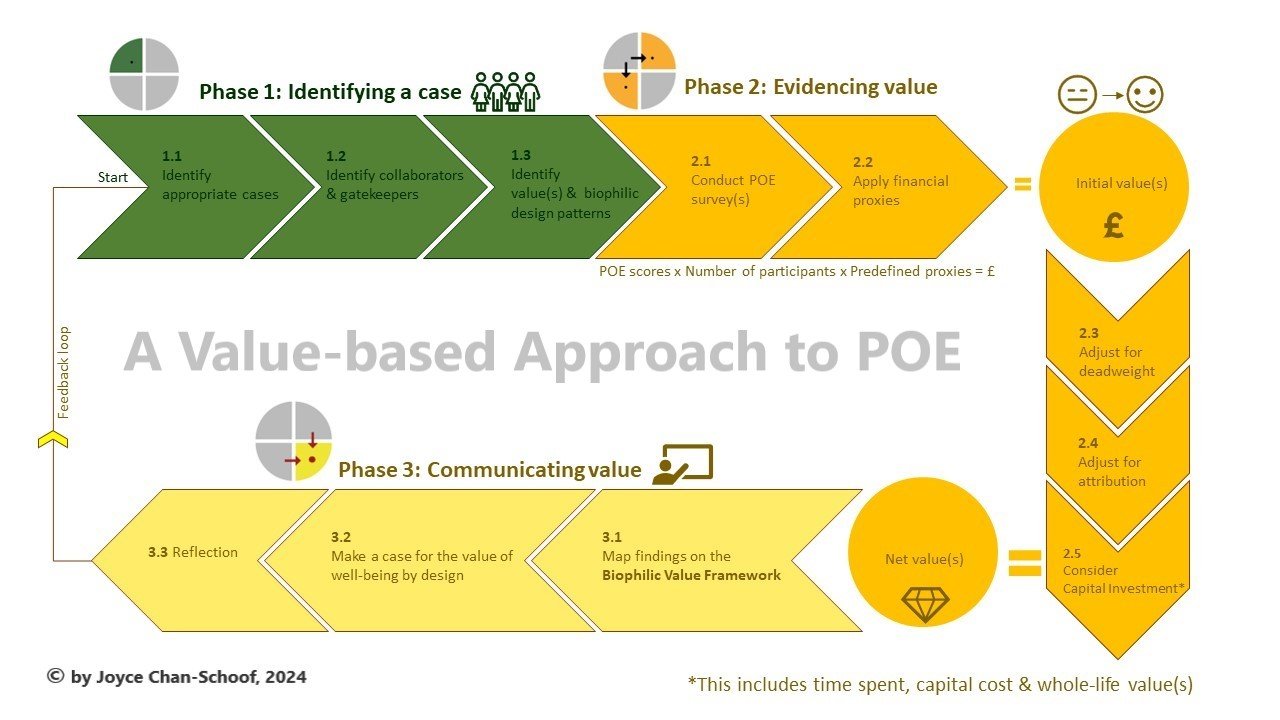Did you know for every £1 you spend on even simple Biophilic Design enhancements, you could get £2.70 back? So reveals the new research conducted by Joyce Chan Shoof Architect and Sustainability Lead at the UK Parliament.
Using a scientific approach with control environments, adding biophilic design elements to test the effect and then removing them to further test the effect of their absence, Joyce explains the rigorous approach she took over a seven-year period to arrive at her conclusion.
This is a phenomenal breakthrough for those of us working in Biophilic Design.
You can read the whole report here: https://plplabs.com/reap-what-you-sow-2/
And come and see Joyce present the research in person at Workplace Trends in London on the 18th April 2024 https://workplacetrends.co/events/wtrs24-prog/
We often have struggled trying to articulate the economic benefits of Biophilic Design, this research can be used to support arguments why businesses need it in the workplace.
Joyce has also developed a framework to help designers work out what we need and the impact it will have. Using existing frameworks, like the Flourish model (as advocated by Professor Derek Clements Croome) and others, she has woven a great new model we can all hang our designs on.
From a career as a practicing architect, Joyce explains that transferring to the client side within the Parliamentary Estate has been transformational in the way she sees building design from feasibility study through to construction. The change and the opportunity it gave her has inspired her to incorporate multidisciplinary approaches and to study the impact of taking a biophilic design on efficiency, productivity and well-being within the workplace.
Just like Goldilocks and the Three Bears, one interesting outcome that she highlights during the podcast, the study concludes that an immersive approach to incorporating Biophilic Design in the workplace is less effective overall than a more measured approach. But she explains that the immersive effect was preferred by people. The results showed that the moderate Biophilic Design intervention (that which we could normally advocate) seems to be the best.
Joyce sees academic rigour as an important part of her role when leading a complex development. Since 2017, she has been conducting this doctoral research with the Design School at Loughborough University, focused on Sustainable Well-being in the workplace with a particular interest in biophilic and social value. She is a keen advocate of how Architects can make positive impacts towards allowing people to live happier and healthier. Her team sits within the Design Authority who are a group of design professionals and specialists who are managing the estate in Westminster, and their objective is to inject new thinking into the adaptive use of new and heritage buildings within the Parliamentary Estate – a UNESCO site.
Parliament’s vision is amibitious; it aims to set an example to lead the early adoption of Zero Carbon (Scope 1, 2 & 3), Healthy Buildings, Social Value and Circular Economy through our own refurbishment projects and procurement. The team manages the design, construction and operations of the Parliamentary Estate of 20 buildings including the Palace of Westminster.
Joyce discusses her study of the economic benefits of incorporating a biophilic design approach to workspace and gives many insights into her approach and into how she found a way of attributing economic value to the benefits.
Her wish is that we reconnect with nature, the sources of food, the feeling of being part of nature rather than living lives that separate us from the natural world. She wishes that all of us benefit from an improved environment, and her research is a massive and welcome step in that direction.
To register for Workplace Trends and meet Joyce in person on the 18th of April 2024: https://workplacetrends.co/events/wtrs24-prog/
Reap What You Sow: What’s the value (£) of Biophilic Design? (14.40)
– Joyce Chan-Schoof (RIBA), PhD Research Researcher, Loughborough University and Sustainability Lead, UK Parliament
Given employees are the largest cost for a business, to what extent can biophilic design save companies money by ensuring that staff are healthier and happier at work? We explore these questions by delving into the monetary benefits of biophilic design. This presentation presents new ways to capture the tangible well-being and environmental values of connecting with nature in the workplace. This project is part of a doctoral research project at Loughborough University in collaboration with PLP Architects, Benholm and Reading University. Joyce’s research is funded by the Design Star (AHRC), and the BCO sponsored the pilot study.
Read more and follow up on the research:
Have you got a copy of the Journal? You can purchase a copy directly from us at the journalofbiophilicdesign.com or Amazon. If you like our podcast and would like to support us in some way, you can buy us a coffee if you’d like to, thank you x
Credits: with thanks to George Harvey Audio Production for the calming biophilic soundscape that backs all our podcasts.
Did you know our podcast is also on Audible, Amazon Music, Spotify, iTunes, YouTube, Stitcher, vurbl, podbay, podtail, and most if not all the RSS feeds?
Facebook https://www.facebook.com/journalofbiophilicdesign/
Twitter https://twitter.com/JofBiophilicDsn
LinkedIn. https://www.linkedin.com/company/journalofbiophilicdesign/
Instagram https://www.instagram.com/journalofbiophilicdesign
